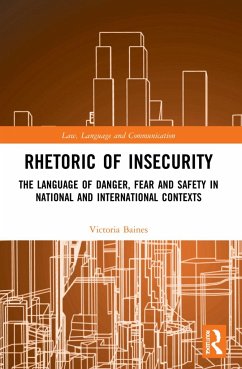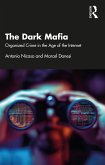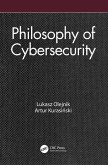This book demands that we question what we are told about security, using tools we have had for thousands of years.
The work considers the history of security rhetoric in a number of distinct but related contexts, including the United States' security strategy, the "war" on Big Tech, and current concerns such as cybersecurity. Focusing on the language of security discourse, it draws common threads from the ancient world to the present day and the near future. The book grounds recent comparisons of Donald Trump to the Emperor Nero in a linguistic evidence base. It examines the potential impact on society of policy-makers' emphasis on the novelty of cybercrime, their likening of the internet to the Wild West, and their claims that criminals have "gone dark". It questions governments' descriptions of technology companies in words normally reserved for terrorists, and asks who might benefit.
Interdisciplinary in approach, the book builds on existing literature in the Humanities and Social Sciences, most notably studies on rhetoric in Greco-Roman texts, and on the articulation of security concerns in law, international relations, and public policy contexts. It adds value to this body of research by offering new points of comparison, and a fresh but tried and tested way of looking at problems that are often presented as unprecedented. It will be essential to legal and policy practitioners, students of Law, Politics, Media, and Classics, and all those interested in employing critical thinking.
The work considers the history of security rhetoric in a number of distinct but related contexts, including the United States' security strategy, the "war" on Big Tech, and current concerns such as cybersecurity. Focusing on the language of security discourse, it draws common threads from the ancient world to the present day and the near future. The book grounds recent comparisons of Donald Trump to the Emperor Nero in a linguistic evidence base. It examines the potential impact on society of policy-makers' emphasis on the novelty of cybercrime, their likening of the internet to the Wild West, and their claims that criminals have "gone dark". It questions governments' descriptions of technology companies in words normally reserved for terrorists, and asks who might benefit.
Interdisciplinary in approach, the book builds on existing literature in the Humanities and Social Sciences, most notably studies on rhetoric in Greco-Roman texts, and on the articulation of security concerns in law, international relations, and public policy contexts. It adds value to this body of research by offering new points of comparison, and a fresh but tried and tested way of looking at problems that are often presented as unprecedented. It will be essential to legal and policy practitioners, students of Law, Politics, Media, and Classics, and all those interested in employing critical thinking.









